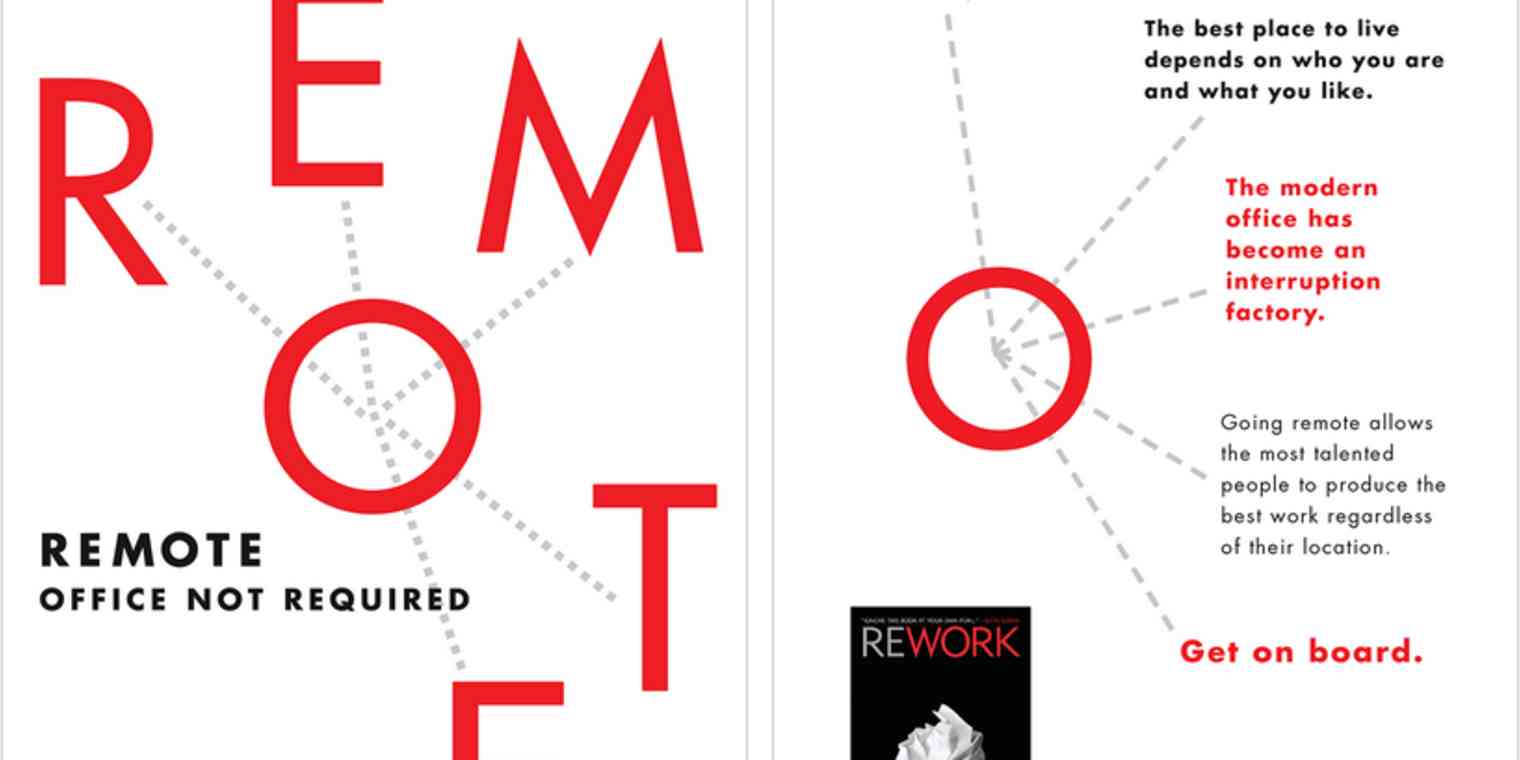The future is already here—it's just not evenly distributed. - William Gibson
That is the quote that opens REMOTE: Office Not Required by Basecamp co-founders, Jason Fried and David Heinemeier Hansson.
At Zapier, we're a remote team and have been since our founding in 2011. And it was the Basecamp team that originally got me excited about remote teams and remote working, so it's no wonder I recommend this book. If you're thinking about getting started with a remote team, this is the most comprehensive beginner's guide to the subject you'll come across.
But as I read REMOTE, one thing stuck out to me: this book is filled with strong information about how to work—remote or not. So here are five reasons you should read REMOTE, whether or not you operate as a remote team.
1. Great remote workers are simply great workers
That's the title of a section in the chapter, "Hiring and Keeping the Best." Every company under the sun is trying to find great workers. And if great remote workers are great workers, then what can you do to identify those types of individuals to help grow non-remote organizations?
How about discovering what makes remote workers so great? According to REMOTE, it's that individual employees can't hide in a remote team. Those who aren't up to snuff simply don't stick around.
This has been true in my experience, which includes time in a corporate co-located environment. In co-located teams, I've seen teammates who are able to stick around simply because they show up and are nice, when truthfully their output is relatively small and they'd be much better suited for a different position.
2. Most work is not coming up with the next big thing
According to REMOTE, there's an assumption of many teams that being in the same room will spark some magical creativity that will help hatch the latest and greatest idea, propelling the business to heights unseen. Most work isn't like this. Most work is simply executing on things you've already decided.
At Zapier, there have been instances when we've fallen prey to the shiniest, newest object syndrome—even as a distributed team. In fact, we've found that the times when we have too many ideas that we're trying to execute on, we end up shipping the least amount of work. We're at our best, conversely, when we focus on tackling fewer ideas, better.
Being remote allows us to bottle up those ideas for a later time. And since sharing ideas happens less frequently (since we don't say out loud everything that goes through our brains), it means the truly good ideas rise to the top rather than the flavor-of-the-week.
3. Most work doesn't actually happen at work
REMOTE starts out with a chapter based on Fried's excellent TEDx talk "Why Work Doesn't Happen At Work". It presents a pretty scary statement:
If you operate a co-located team and most work isn't happening when you open your office and designate a time for people to work, wouldn't you want to know why?
REMOTE outlines the single reason this happens: interruptions.
If you find that interruptions are causing your team to struggle with getting work done, then it's something you need to fix.
4. Evaluation is done by outcome, not by presence
It's hard to do management in a remote team, because most management theories don't address remote teams. Instead, you throw all the theories out the window, and all you have left to manage and evaluate is the actual work of your employees. Pretty novel thought, eh?
REMOTE calls attention to how simple it is to evaluate progress of teammates in a remote team. If you use a project management tool like Basecamp, it'll be fairly obvious if the work a teammate checks in is frequently flagged as needing improvement or if the work a user checks in is few and far between.
At the end of the day, you hired your teammates to do good work and do it in a timely manner. So why would you manage and evaluate them on other things?
5. Office politics are avoided through transparency
Office politics often happen because of closed-door meetings. In a remote team, it's a lot harder to have those meetings or jockey for a position in a company.
With the proverbial curtain pulled back and the playing field level for everyone, the only thing left to see is what work is getting done—and by whom.
If you manage a team, read REMOTE
Fried and Heinemeier Hansson's book excels at explaining the problems of the 21st-century workplace. Whether or not you're a part of a remote team, the book will help you master a new breed of management techniques that could, as I've learned, be applied in a non-remote setting, too.





